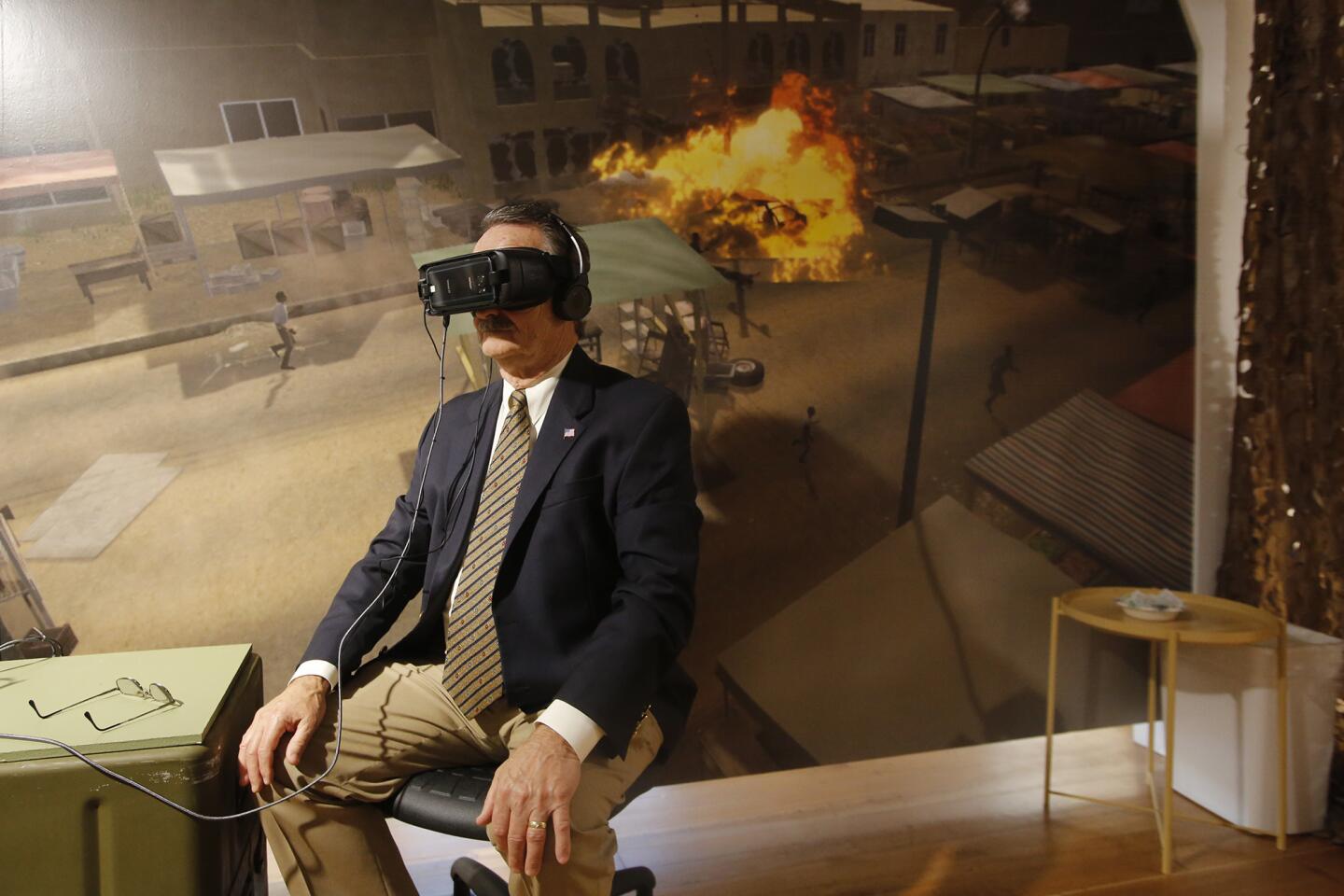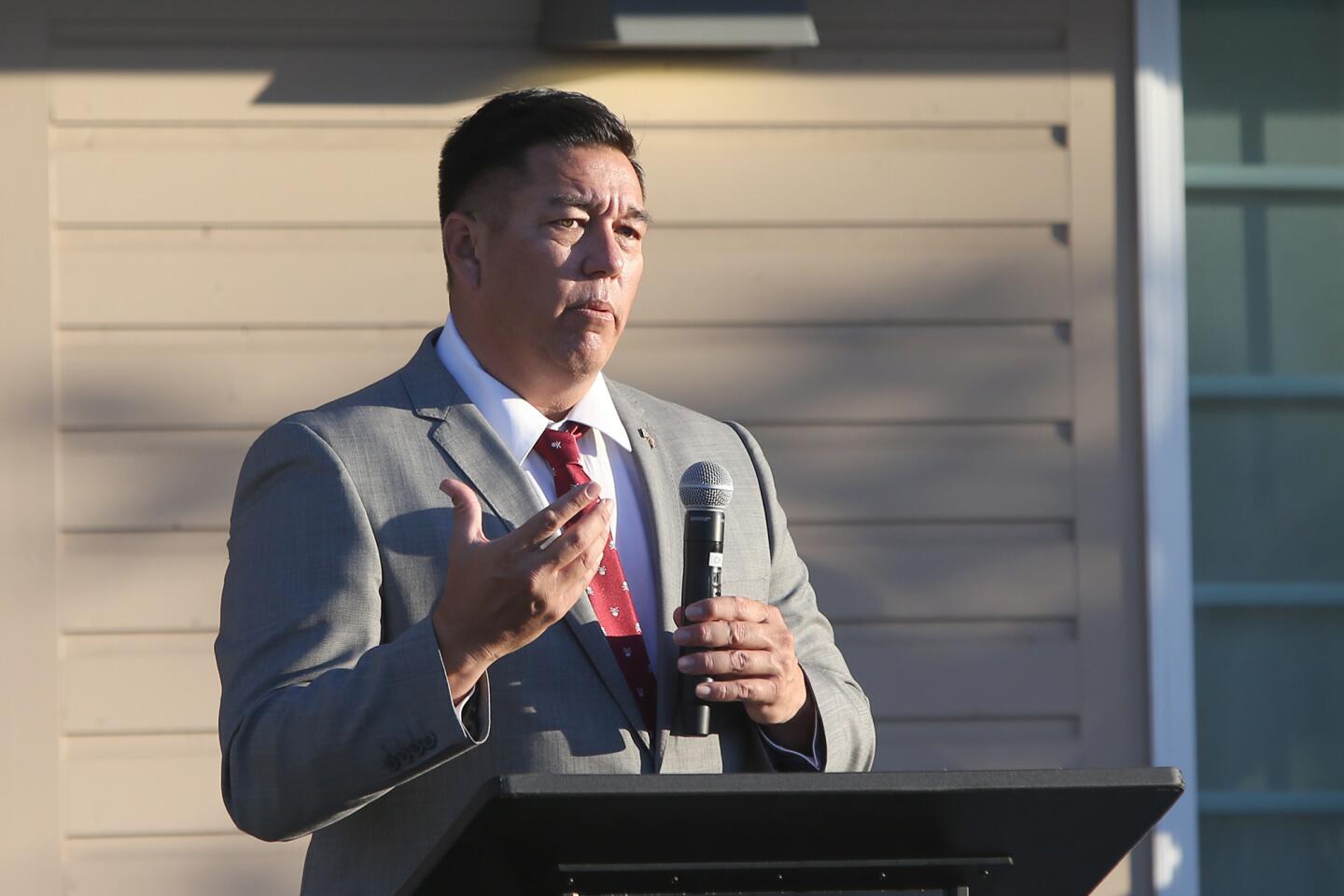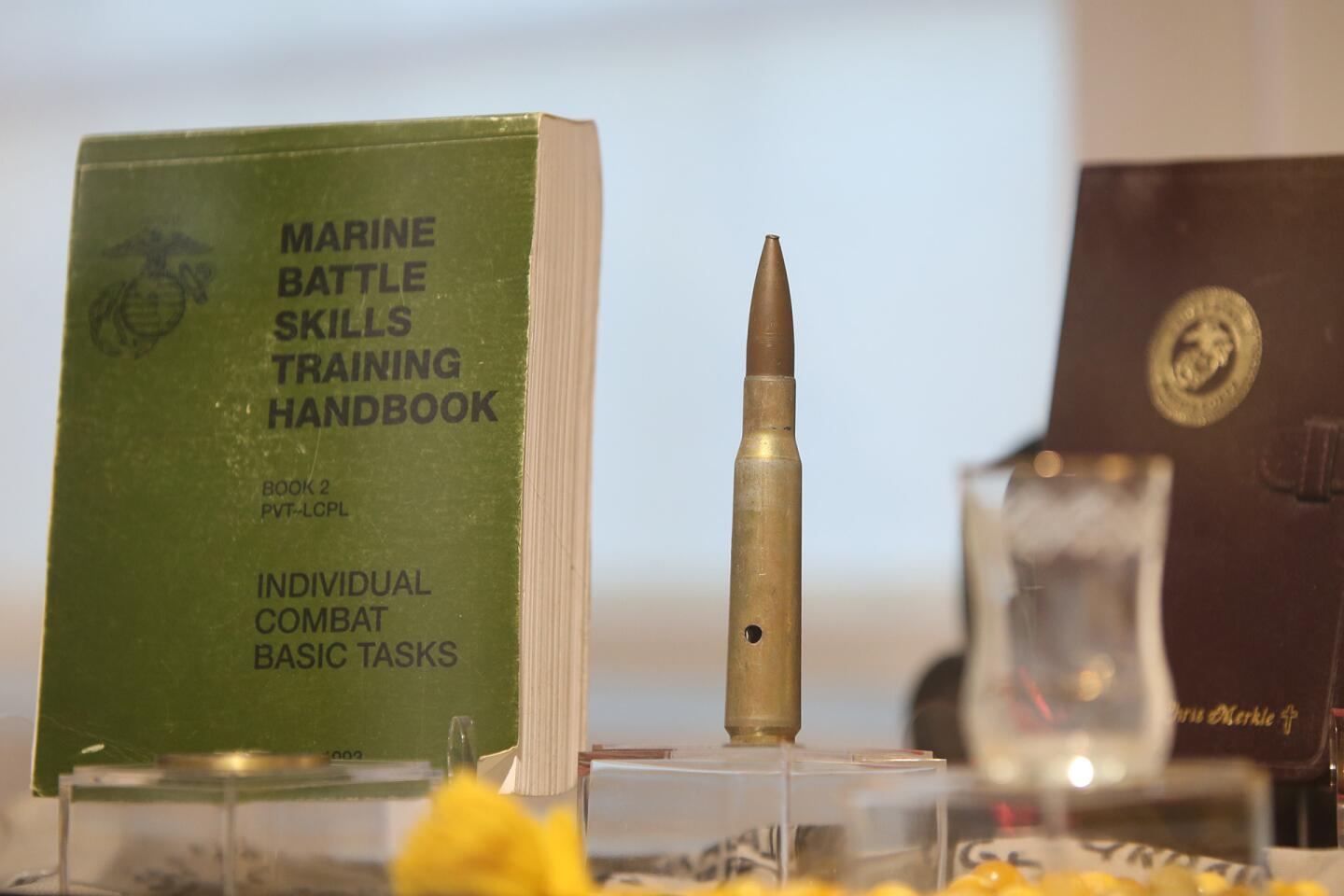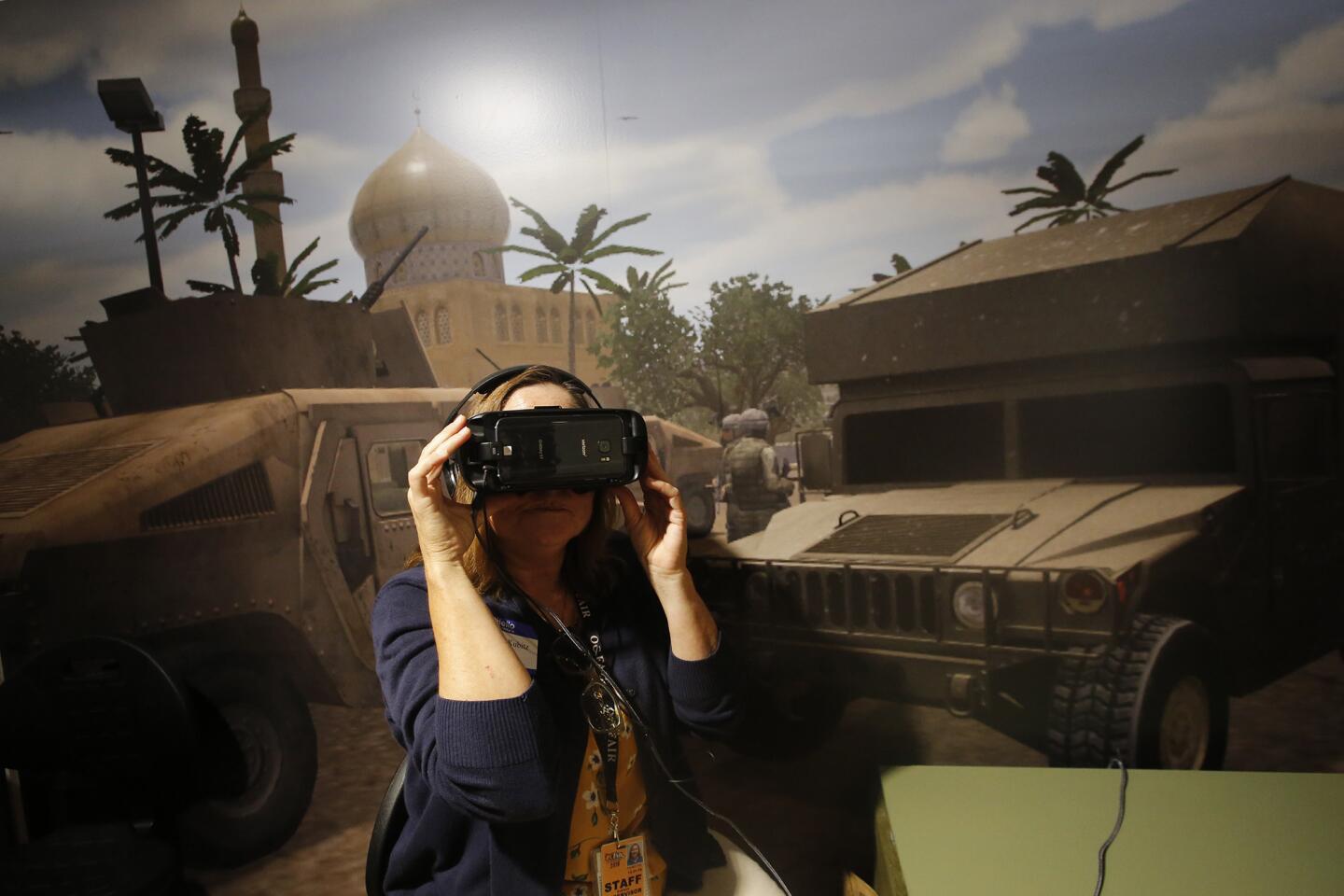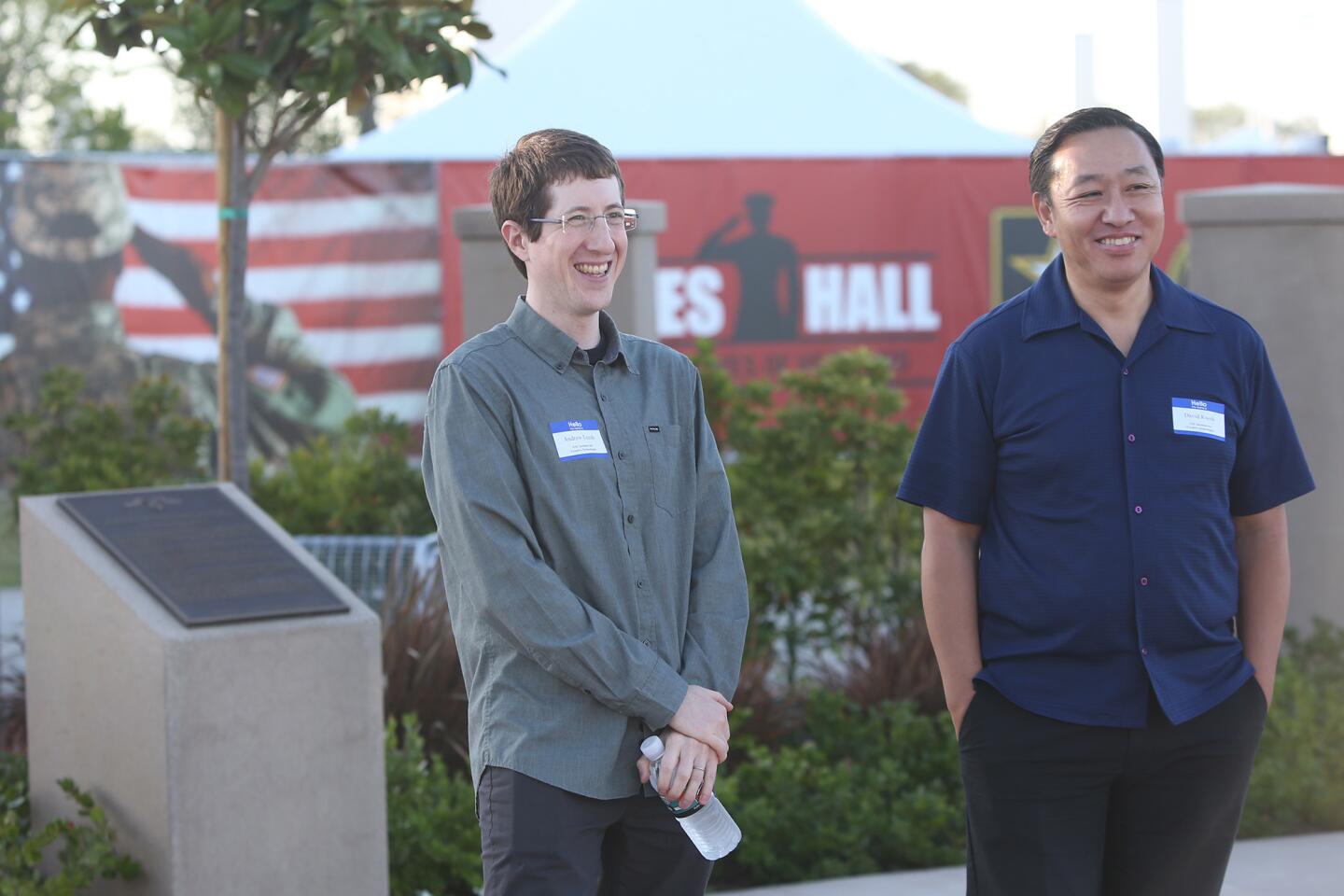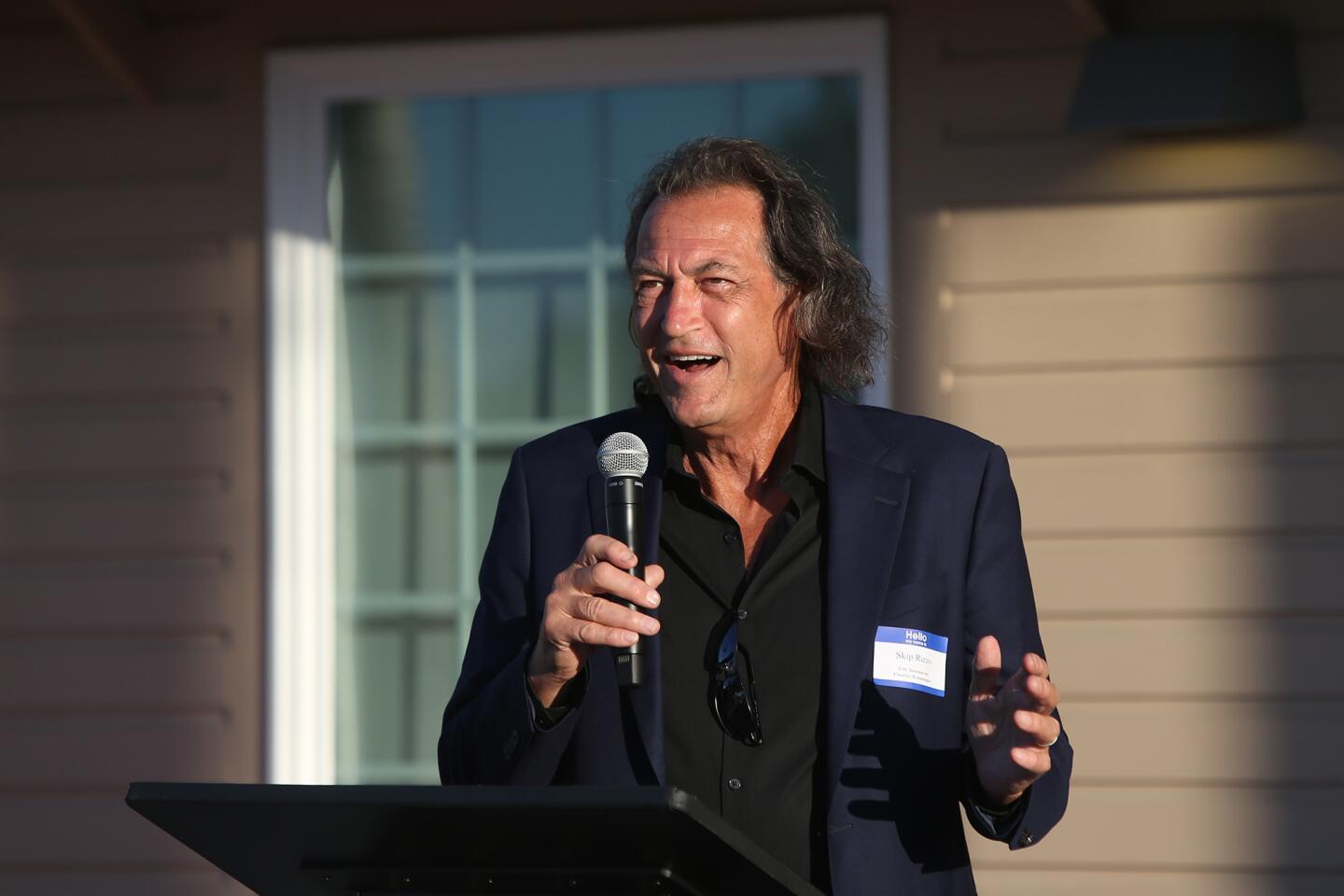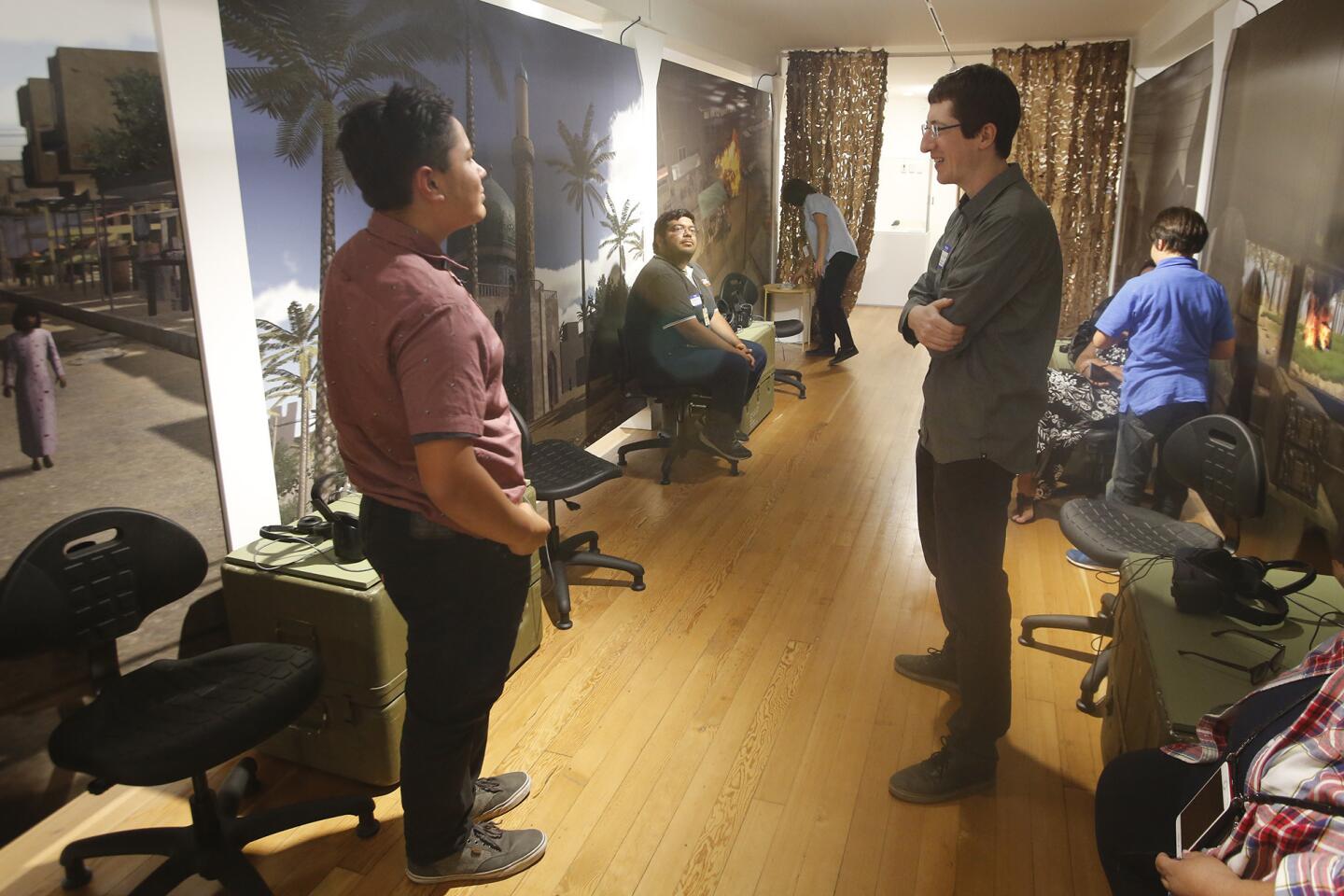OC Fair virtual reality exhibit provides window into PTSD treatment
- Share via
A new virtual reality experience at the OC Fair & Event Center offers insights into how researchers are using advanced technology to treat veterans suffering from post-traumatic stress disorder.
Visitors to the Heroes Hall veterans museum can put on special goggles and headphones and enter the “Bravemind: Using Virtual Reality to Combat PTSD” exhibition when the Orange County Fair opens Friday.
They will find themselves immersed in a two-and-a-half-minute segment featuring a realistic representation of a war-torn setting.
Designed by USC’s Institute for Creative Technologies, Bravemind is an interactive program clinicians use to slowly immerse veterans and military service members into virtual environments that relate to their traumatic experiences — but in controlled settings — as a form of treatment.
OC Fair & Event Center CEO Kathy Kramer described the new exhibit as a noteworthy effort for fairgoers to learn a little bit about what warriors experience in combat.
The virtual reality, or VR, technology provides multi-sensory environments that can be readily created and modified to a patient’s needs in an effort to help veterans transition into civilian life. Clinicians monitor patient stress through brain imaging and psycho-physiological assessments.
In one scene, the narrator walks users through a calm, outdoor market disrupted by the ignition of a bomb in a nearby building. In another scene, users sit at the top of a tank rolling through a desert road headed toward a cloud of smoke.
Huntington Beach veteran Christopher Merkle, who served in the Marine Corps for 14 years, found the tool therapeutic.
During a media preview of the exhibit last month, Merkle said that as a boy he dreamed of being like John Wayne — namely his Sgt. John Stryker character in 1949’s “Sands of Iwo Jima.”
Merkle enlisted at 17, quickly became good at his job and took pride in eventually training other Marines. He served in Iraq and Afghanistan.
Navigating the trauma proved difficult once he returned to civilian life. PTSD took over.
“The hardest part of a military person or veteran is to ask for help,” he said. “We’re always this machine that’s pushing forward.”
The stigma attached to PTSD doesn’t make it easy for a veteran to seek help, Merkle said.
When a Marine is at war, Merkle explained, he or she is alone with his or her thoughts, desperately wanting to go home.
But when Marines head home, they often struggle to reconnect with family and friends and find themselves wanting to return to combat, he said.
When he finally reached out for help, Merkle said traditional therapy — where a clinician tries to help a veteran navigate PTSD through dialogue — didn’t work. He was referred to Bravemind.
“VR puts you in that space,” Merkle said. “It’s hard to describe, but it’s in that moment I’m seeing this, and I’m seeing that.”
Albert “Skip” Rizzo, USC’s director for medical virtual reality, said he was impressed with the labor of love the exhibit turned out to be for OC Fair staff.
If Bravemind continues to garner success and acceptance, Rizzo said it can open the door to help mitigate other traumas.
“PTSD isn’t a life sentence,” Rizzo said. “Don’t give up hope seeking treatment.”
The fair ends Aug. 12. The VR exhibit, which also features informational displays and war memorabilia, will be at Heroes Hall for the remainder of the year.
Twitter: @vegapriscella
All the latest on Orange County from Orange County.
Get our free TimesOC newsletter.
You may occasionally receive promotional content from the Daily Pilot.
